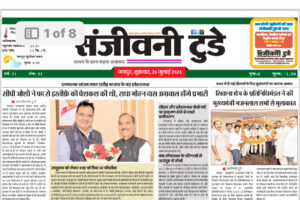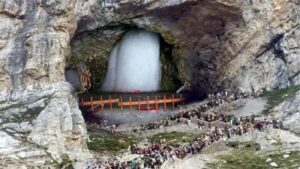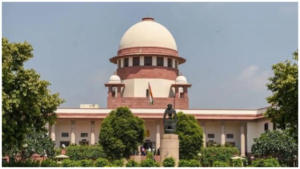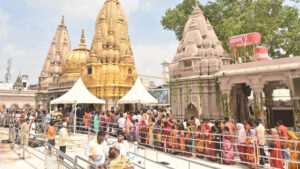Bahá’ís around the globe will commemorate 180th Anniversary of the Declaration of the Báb, Prophet-Herald of the Bahá’í Faith on 8 ‘Azamat 181 B.E. i. e. on 23 May 2024 A.D.
As promised by the Báb, the holy festival of the Declaration of the Báb is “one of the greatest and most significant of all festivals.”

This holy day begins at Sunset on Wednesday, 22 May, 2024 and ends at Sunset on Thursday, 23 May, 2024 as per the newly implemented Baháʼí Calendar.
It commemorates when the Báb announced in 1844 that He was the new Messenger of God. The holiday begins two hours and eleven minutes after sunset on May 22, which is the exact time the Báb made His declaration.
As mentioned above, on a spring evening on May 22rd, 1844, Báb announced that He was the bearer of a Divine Revelation whose aim was to prepare the world for “Him Whom God Shall Make Manifest,” a Messenger of God known as Bahá’u’lláh.
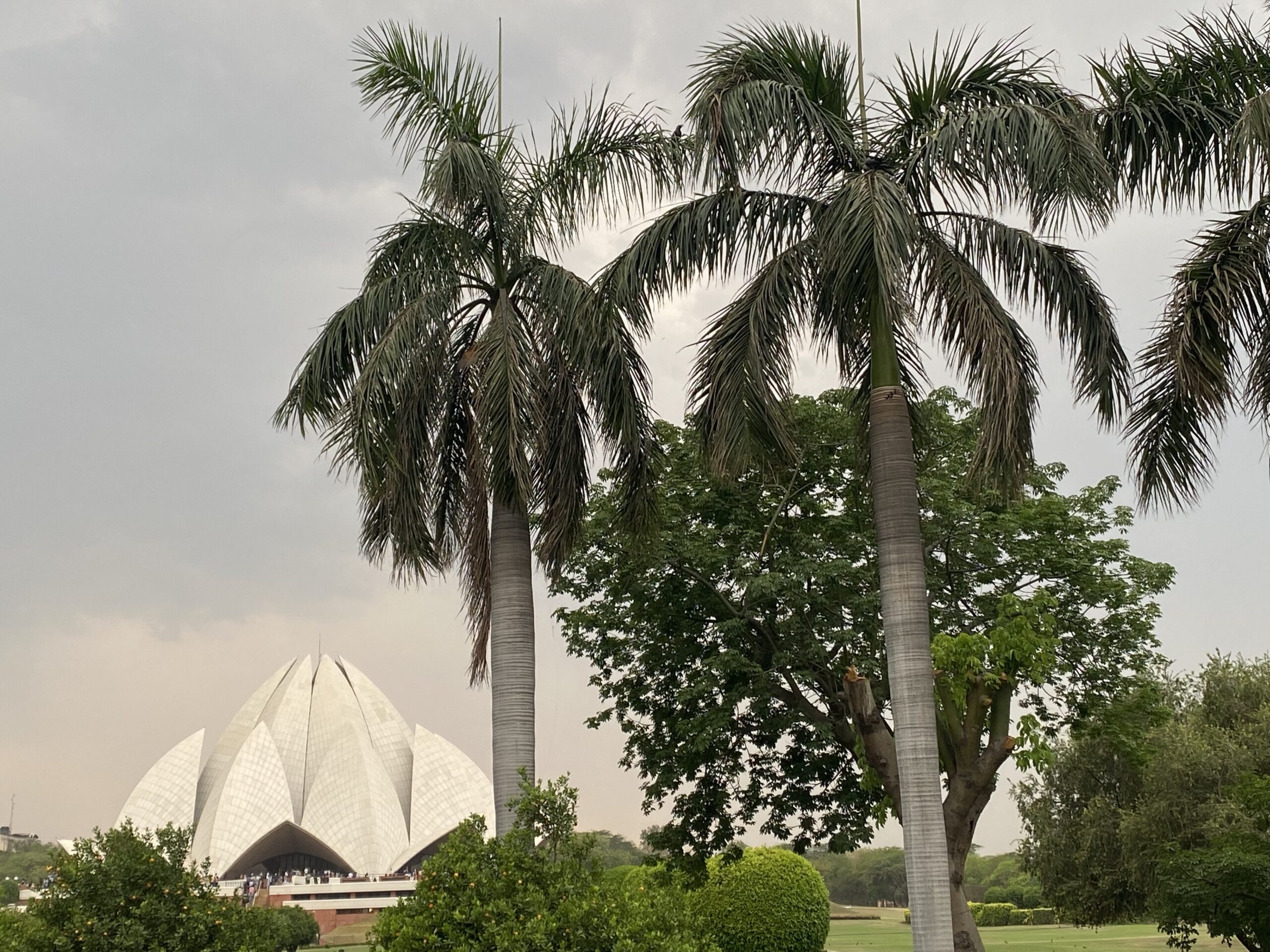
On this day in 1844 the Báb was sent forth heralding and proclaiming the Kingdom of God, announcing the glad tidings of the coming of Bahá’u’lláh and withstanding the opposition of the whole Persian nation. Some of the Persians followed Him. For this they suffered the most grievous difficulties and severe ordeals. They withstood the tests with wonderful power and sublime heroism. Thousands were cast into prison, punished, persecuted and martyred. Their homes were pillaged and destroyed, their possessions confiscated. They sacrificed their lives most willingly and remained unshaken in their faith to the very end. Those wonderful souls are the lamps of God, the stars of sanctity shining gloriously from the eternal horizon of the will of God.
On this day in May of 1844, the Báb declared His Mission as the Báb to an ardent spiritual seeker named Mulla Husayn. Younger than Jesus when He inaugurated His revelation, the Báb established, at two hours and eleven minutes after sunset on that day, an entirely new Faith, renewing the eternal promise of religion itself. The Báb promised Mulla Husayn that:
This night, this very hour will, in the days to come, be celebrated as one of the greatest and most significant of all festivals. Render thanks to God for having graciously assisted you to attain your heart’s desire, and for having quaffed from the sealed wine of His utterance.
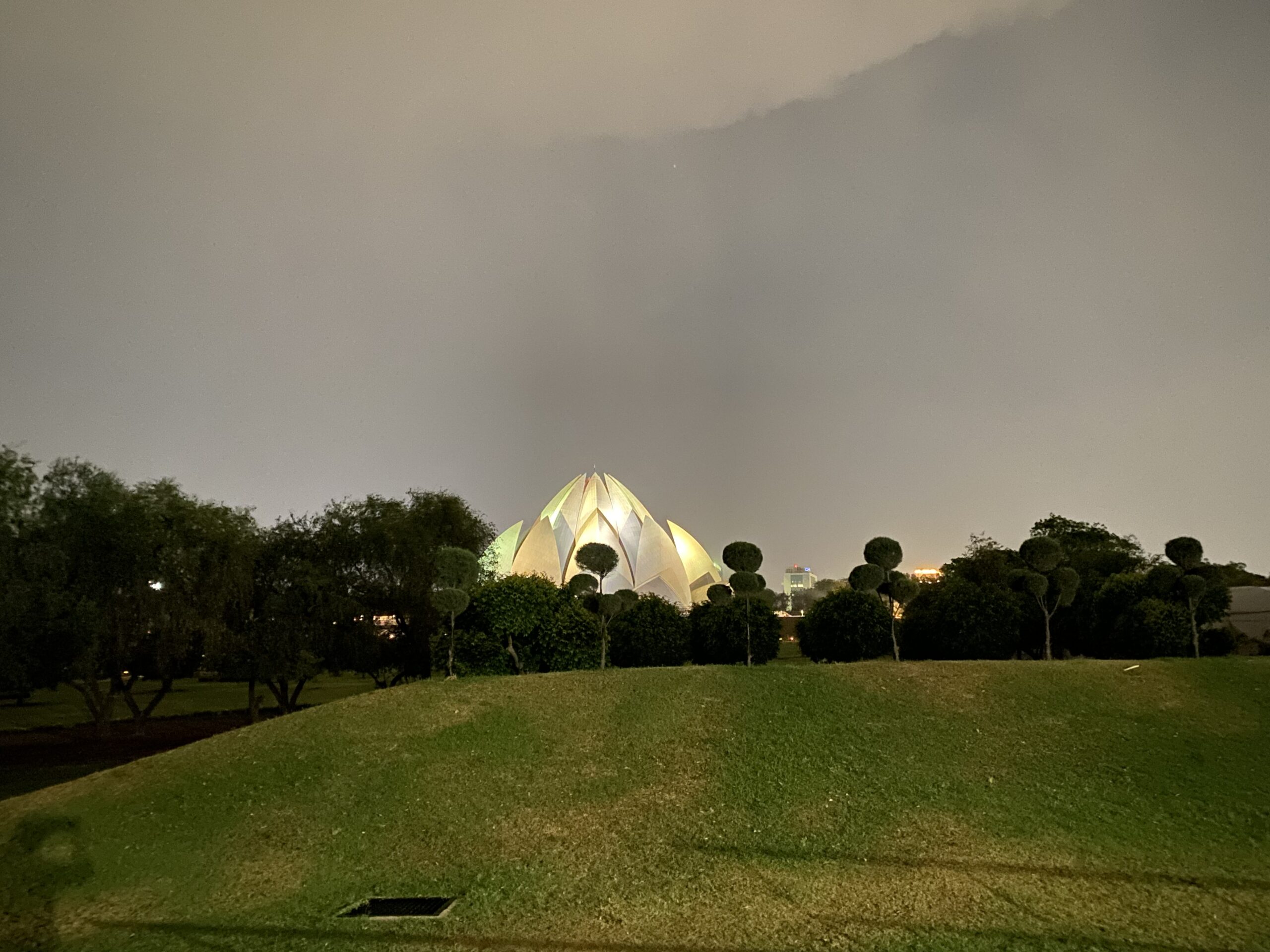
The Báb was
born in 1819 into a family of merchants and traders, raised by His maternal uncle after the premature death of His father in 1826, a mystic descended from many generations of mystical Sufis, known from childhood for His wisdom, intelligence and humility, The Báb’s teachings would spark a revolutionary religious movement unparalleled in history.
The Bahá’í Era began with the Declaration of the Báb, May 23, 1844, when the Báb announced that He was a Messenger of God and foretold the coming of another messenger of God in the near future. The event took place in Shiraz, Persia (now Iran).
May 23, 1844, signalizes the commencement of the most turbulent period of the Heroic Age of the Bahá’í Era, an Age which marks the opening of the most glorious epoch in the greatest cycle which the spiritual history of mankind has yet witnessed. No more than a span of nine short years marks the duration of this most spectacular, this most tragic, this most eventful period of the first Bahá’í century. It was ushered in by the birth of a Revelation whose Bearer posterity will acclaim as the “Point round Whom the realities of the Prophets and Messengers revolve,” and terminated with the first stirrings of a still more potent Revelation, “whose day,” Bahá’u’lláh Himself affirms, “every Prophet hath announced,” for which “the soul of every Divine Messenger hath thirsted,” and through which “God hath proved the hearts of the entire company of His Messengers and Prophets”…
Every time we reflect on the declaration of the Báb, we hear the story of Mulla Husayn meeting the Báb on that special night on May 22 but how did the Báb receive that divine call from God? Is there any information of when the Báb Himself found out? It seems like history begins with the Báb telling Mulla Husayn of His station but we don’t hear anything before that… At least with Bahá’u’lláh we know of that moment of revelation during His time in the Black Pit.
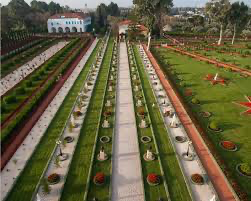
Beloved Guardian of the Bahá’í Faith, Shoghi Effendi likens the Burning Bush for Moses, the visions of Zoroaster for Him, the Dove for Jesus, the angel Gabriel for Muhammad, and the Maid of Heaven for Bahá’u’lláh to a dream that the Báb had in which He drank the blood of the Imám Husayn.
In one of His writings revealed in the year 1260 A.H., (1844 A.D.) the Báb declares the following: “The spirit of prayer which animates My soul is the direct consequence of a dream which I had in the year before the declaration of My Mission. In My vision I saw the head of the Imam Husayn, the Siyyidu’-sh-Shuhada’, which was hanging on a tree. Drops of blood dripped profusely from His lacerated throat. With feelings of unsurpassed delight, I approached that tree and, stretching forth My hands, gathered a few drops of that sacred blood, and drank them devoutly. When I awoke, I felt that the Spirit of God had permeated and taken possession of My soul. My heart was thrilled with the joy of His Divine presence, and the mysteries of His Revelation were unfolded before My eyes in all their glory.” (The Dawn Breakers, Nabil’s Narrative, page 253).
‘Abdu’l-Baha, the son and successor of Bahá’u’lláh, explained that dual revelation in the book “Some Answered Questions:”
“All the peoples of the world are awaiting two Manifestations, Who must be contemporaneous. This is what they all have been promised. In the Torah, the Jews are promised the Lord of Hosts and the Messiah. In the Gospel, the return of Christ and Elijah is foretold. In the religion of Muhammad, there is the promise of the Mahdi and the Messiah. The same holds true of Zoroastrians and others, but to belabour this matter would prolong our discourse. Our meaning is that all have been promised the advent of two successive Manifestations. It has been prophesied that, through these twin Manifestations, the earth will become another earth; all existence will be renewed; the contingent world will be clothed with the robe of new life; justice and righteousness will encompass the globe; hatred and enmity will disappear; whatever is the cause of division among peoples, races, and nations will be obliterated; and that which ensures unity, harmony, and concord will be promoted”.
As mentioned above, the young Prophet-Herald of the Bahá’í Faith, declared His Mission to the first of His believers during the fateful evening of May 22, 1844, the world’s newest global Faith began. Bahá’ís all around the world believe that the Báb, a title which means the Gate, ushered in a New Era destined to establish the unity of humanity, in which “the cause of division among peoples, races, and nations will be obliterated.”
The Báb who was one of the twin Manifestations of God whose role was to herald the coming of the latest Supreme Manifestation of God, Bahá’u’lláh.
Bahá’u’lláh says about the Báb in the Tablet of Ahmad:
“Verily He is the King of the Messengers and His book is the Mother Book did ye but know…”
Each of these two divine messengers, who the Bahá’í teachings refer to as Manifestations of God, founded a distinct religion – the Bábi and the Bahá’í Faiths. The Báb, however, said that the primary purpose of His new Faith was to prepare the way for “Him Whom God shall make manifest” – to act as a herald and Fore-runner of the second of these Twin Manifestations, Bahá’u’lláh.
With this historic Declaration the dawn of an Age that signalizes the consummation of all Ages had broken. The first impulse of a momentous Revelation had been communicated to the one “but for whom,” according to the testimony of the Kitab-i-Iqan, “God would not have been established upon the seat of His mercy, nor ascended the throne of eternal glory.” (Shoghi Effendi: God Passes By, Pages: 3-8)
A more significant light, however, is shed on this episode, marking the Declaration of the Mission of the Báb, by the perusal of that “first, greatest and mightiest” of all books in the Bábi Dispensation, the celebrated commentary on the Surih of Joseph, the first chapter of which, we are assured, proceeded, in its entirety, in the course of that night of nights from the pen of its divine Revealer. The description of this episode by Mulla Husayn, as well as the opening pages of that Book attest the magnitude and force of that weighty Declaration. A claim to be no less than the mouthpiece of God Himself, promised by the Prophets of bygone Ages; the assertion that He was, at the same time, the Herald of One immeasurably greater than Himself; the summons which He trumpeted forth to the kings and princes of the earth; the dire warnings directed to the Chief Magistrate of the realm, Muhammad Shah; the counsel imparted to Haji Mirza Aqasi to fear God, and the peremptory command to abdicate his authority as grand vizir of the Shah and submit to the One Who is the “Inheritor of the earth and all that is therein”; the challenge issued to the rulers of the world proclaiming the self-sufficiency of His Cause, denouncing the vanity of their ephemeral power, and calling upon them to “lay aside, one and all, their dominion,” and deliver His Message to “lands in both the East and the West” – these constitute the dominant features of that initial contact that marked the birth, and fixed the date, of the inception of the most glorious Era in the spiritual life of mankind.
“This Revelation,” Mulla Husayn has further testified, “so suddenly and impetuously thrust upon me, came as a thunderbolt which, for a time, seemed to have benumbed my faculties. I was blinded by its dazzling splendor and overwhelmed by its crushing force. Excitement, joy, awe, and wonder stirred the depths of my soul. Predominant among these emotions was a sense of gladness and strength which seemed to have transfigured me. How feeble and impotent, how dejected and timid, I had felt previously! Then I could neither write nor walk, so tremulous were my hands and feet. Now, however, the knowledge of His Revelation had galvanized my being. I felt possessed of such courage and power that were the world, all its peoples and its potentates, to rise against me, I would, alone and undaunted, withstand their onslaught. The universe seemed but a handful of dust in my grasp. I seemed to be the voice of Gabriel personified, calling unto all mankind: `Awake, for, lo! the morning Light has broken. Arise, for His Cause is made manifest. The portal of His grace is open wide; enter therein, O peoples of the world! For He Who is your promised One is come!'”
The opening scene of the initial act of this great drama was laid in the upper chamber of the modest residence of the son of a mercer of Shiraz, in an obscure corner of that city. The time was the hour before sunset, on the 22nd day of May, 1844. The participants were the Báb, a twenty-five year old siyyid, of pure and holy lineage, and the young Mulla Husayn, the first to believe in Him. Their meeting immediately before that interview seemed to be purely fortuitous. The interview itself was protracted till the hour of dawn. The Host remained closeted alone with His guest, nor was the sleeping city remotely aware of the import of the conversation they held with each other. No record has passed to posterity of that unique night save the fragmentary but highly illuminating account that fell from the lips of Mulla Husayn.
“I sat spellbound by His utterance, oblivious of time and of those who awaited me,” he himself has testified, after describing the nature of the questions he had put to his Host and the conclusive replies he had received from Him, replies which had established beyond the shadow of a doubt the validity of His claim to be the promised Qa’im. “Suddenly the call of the Mu’adhdhin, summoning the faithful to their morning prayer, awakened me from the state of ecstasy into which I seemed to have fallen. All the delights, all the ineffable glories, which the Almighty has recounted in His Book as the priceless possessions of the people of Paradise – these I seemed to be experiencing that night. Methinks I was in a place of which it could be truly said: `Therein no toil shall reach us, and therein no weariness shall touch us;’ `no vain discourse shall they hear therein, nor any falsehood, but only the cry, “Peace! Peace!”‘; `their cry therein shall be, “Glory to Thee, O God!” and their salutation therein, “Peace!”, and the close of their cry, “Praise be to God, Lord of all creatures!”‘ Sleep had departed from me that night. I was enthralled by the music of that voice which rose and fell as He chanted; now swelling forth as He revealed verses of the Qayyumu’l-Asma’, again acquiring ethereal, subtle harmonies as He uttered the prayers He was revealing. At the end of each invocation, He would repeat this verse: `Far from the glory of thy Lord, the All-Glorious, be that which His creatures affirm of Him! And peace be upon His Messengers! And praise be to God, the Lord of all beings!'”
“This Revelation,” Mulla Husayn has further testified, “so suddenly and impetuously thrust upon me, came as a thunderbolt which, for a time, seemed to have benumbed my faculties. I was blinded by its dazzling splendor and overwhelmed by its crushing force. Excitement, joy, awe, and wonder stirred the depths of my soul.”
Mullá Husayn left, filled with wonder. He spent the rest of his life sharing the Báb’s teachings. He helped people prepare for the next Messenger of God, Bahá’u’lláh, Who would bring a message of peace for the entire world.
Like a spiritual wildfire, the news spread quickly. The Báb’s magnetic appeal, based not only on His new principles and writings, but also on the kindness, compassion, and spiritual intensity He radiated, won over many thousands of people. Those people became Bábis, creating an uproar in traditional Persian Islamic society and among its Shiite power structure.
The Baháʼí Faith has eleven holy days, which are important anniversaries in the history of the religion. On nine of these holy days, work is suspended.
Therefore, the day of the Declaration of the Báb (May 23, 2024) is one of nine holy days in the Bahá’í calendar when believers suspend work and school.
Today, just as Mulla Husayn, the first follower of the Báb did on that day, Baha’is rejoice and celebrate every year on the anniversary of the Bab’s momentous declaration, when He first sounded the great call for the unity of all peoples, races, nations and Faiths.
New religions begin when a Prophet of God receives a revelation, a mystical transference of inspiration, knowledge and spiritual power from the Creator. Then a few visionary early disciples begin to respond with their hearts and souls, and a new religion is born. With Buddha, with Abraham, with Jesus, with Muhammad, this same basic pattern applied.
So every year in May millions of Baha’is around the world celebrate the Declaration of the Báb – which has become, exactly as the Báb promised, “one of the greatest and most significant of all festivals.”
Compiled by
Jaya Raju Thota
Greater Visakhapatnam
INDIA





